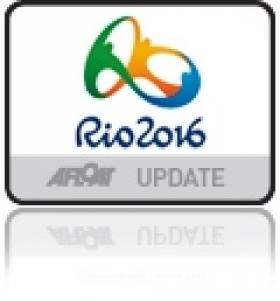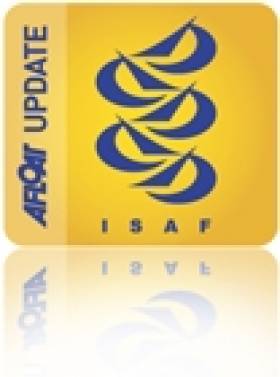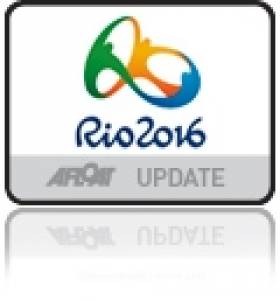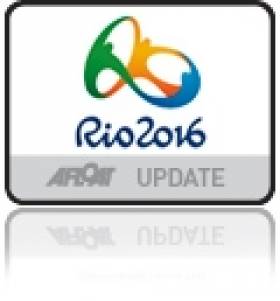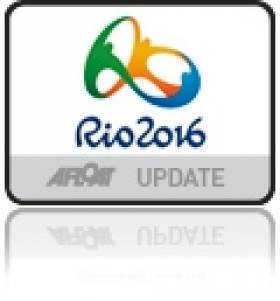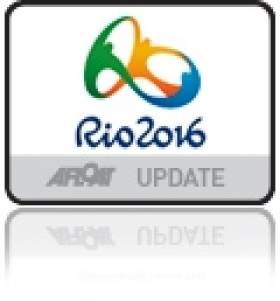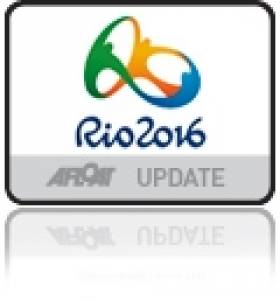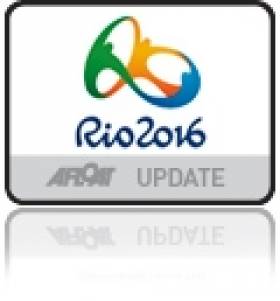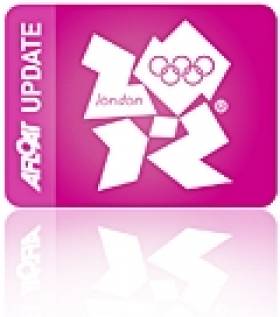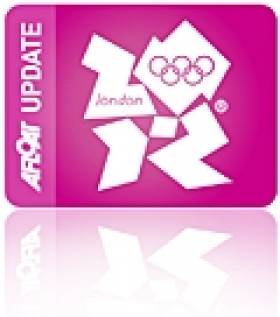Displaying items by tag: IFDS
John Twomey Resigns As Head of Disabled Sailing's Governing Body
#IFDS - Ten-time Irish Paralympian John Twomey has resigned as president of the International Association for Disabled Sailing (IFDS), as Olympics news site Inside The Games reports.
Afloat's Sailor of the Month for August 2013 departs from his role after sailing's axing from the Tokyo 2020 Paralympics was confirmed after a review by the ISAF.
Though the ISAF, with which the IFDS merged last year, says it "will continue to work hard to reinstate sailing" in future Paralympics, that charge will now be headed by Twomey's interim replacement Bernard Destrubé – who paid tribute to the Kinsale sailor's leadership during a tumultuous time for the parasport.
Inside The Games has more on the story HERE.
Disabled Sailing World Body To Merge With ISAF
#IFDS - The International Association for Disabled Sailing (IFDS) has agreed to a merger with the International Sailing Federation (ISAF) that will secure the future of competitive sailing for athletes with disabilities.
The ISAF's official website explains that the merger, to be completed in 12 months' time, will create a single governing body for member national authorities and sailors alike "to better serve the needs and interests of sailors with disabilities".
IFDS president and former Irish Paralympian John Twomey said he was "delighted" at the agreement and said he and his team "look forward to implementing" the new alliance, which would provide for consistent regulations across all sailing classes, both able bodied and differently abled.
The functions of the current IFDS leadership will be replaced by a new IFDS Committee within the ISAF Annual Conference schedule, and the IFDS chair will hold a full voting seat on the ISAF Council.
In addition, the IFDS will retain responsibility for the Paralympic Sailing Competition, including event and equipment selection as well as the IFDS World Championships - staged this summer in Kinsale.
The merger news comes just four months after Twomey warned of the potential bankruptcy of the IFDS, arising from the substantial legal costs incurred in an action over the results of the Sonar class at the 2012 Paralympics.
IFDS Disabled Sailing Paralympic World Champions Crowned in Kinsale
#ifds – What a week we have all enjoyed at Kinsale Yacht Club who ran a superb event that was enjoyed by all and sundry who had any connection with the Regatta writes Claire Bateman. It was no easy feat and John Stallard, the Event Director, must be a very happy and relieved man tonight. Sure we had two days when there was no sailing but Kinsale being what it is, the competitors were able to enjoy the wonderful facilities that Kinsale is famous for, not least being known as the gourmet capital of Ireland and set in some of the most glorious scenic areas in the locality. The forecast was uncanny in its accuracy and nobody had any doubts that there was going to be wind to enable a series to be completed and so it was.
Tuesday and Thursday produced unbeatable sailing conditions with sun, wind and hugely exhilarating conditions. Here again Kinsale are blessed with the fact that they have Bullen Bay where they sailed the 2.4Rs where these small boats, looking like miniature 12 metres, were able to sail comfortably without having to endure too much swell.
Today, the last day, produced the first rain and drizzle of the series that pretty well obscured the usual landmarks and even a very large black ship outside the sailing area was barely visible and the conditions must have been especially tough for the gallant sailors in the 2.4mRs. However, the rain and drizzle lifted and in some twelve knots of breeze the Sonars got in three races with the other two fleets getting in two races each.
The most eagerly and tensely awaited race was the final race for the 2.4mR class which was fought out all week between Heiko Kroger from Germany and Guus Bijlard from the Netherlands tied on equal points the top of the fleet and being hotly pursued by Damien Seguin from France. Finally it was Kroger, Billard and Seguin in that order making Heiko Kroger of Germany the 2.4mR World Champion.
In the Sonars it was obvious from the very start that the wily French sailor, Bruno Jourdren was not going to let anyone stand in his way. The French are so into their sailing and are really excellent and very hard to beat. He never allowed anyone to have a look in for the series and no matter how hard Udo Hessels from the Netherlands tried to break the French man's hold he could not succeed and had to settle for second place with the Australian sailor Colin Harrison taking the bronze with Bruno Jourdren is now the Sonar Class World Champion. IFDS President John Twomey of KinsaleYC finished in ninth position.
In the SKUD 18 fleet Alexandra Rickham and Niki Birrell with their unmistakable green kite were the unstoppable winners and took the world title with Italy's Marco Gualandris second and John McRoberts of Canada settling for bronze.
With such a successful event for Kinsale would it be too much to ask that we might see the competition return there at some future date?
All to Play for at IFDS Disabled Sailing Worlds in Kinsale
#ifds – Today the wind was up and the sun was shining and from early on there was certainly no sign of competitors and officials relaxing with coffee around the Kinsale Yacht Club writes Claire Bateman. Every one had gone to sea fully ready for action and determined to get the most out of the day. They were not to be disappointed.
The weather forecasters had got it spot on and a nice south westerly wind of about ten knots filled in and the Race Officers were anxious to get up and running.
Your intrepid photographer and scribe had been slightly delayed getting to Kinsale this am and as a result were in fact last leaving the marina . However, we managed to arrive bang on time and went first to the Sonar fleet who were in sequence. Here all praise must be given to the Race Officers and mark laying boats for all the fleets and they should certainly sleep well tonight. The slickness and timing of the entire operation had to be seen to be believed. In fact the two Race Officers were starting their races exactly on their scheduled times.
It was good to see Irish IFDS President, John Twomey getting off to an excellent start and rounding the first windward mark in third place. The Sonar Class have now completed six races and it is the French team of Bruno Lourdren, Eric Flageul and Nicolas Vimont-Vicary who are current leaders on seven points after one discard. They are followed by NED 1 helmed by Udo Hessels and crewed by Mischa Rossen and Marc el van de Veen on eighteen points. In third place is AUS 1 helmed by Colin Harrison, crewed by Jonathon Harris and Russell Boaden on twenty points. The top Irish score in the class is IFDS President John Twomey crewed by Ian Costelloe and Anthony Hegarty on thirty points. .
In the SKUD Class The battle is between Alexandra Rickham and crew Niki Birrell from the UK , the Italian team led by Marco Gualandrias and John Mcroberts of Canada in first, second and third places respectively. The British team are now counting four first places with the Italians counting a first and three seconds and Canada counting two seconds and two thirds.
Meanwhile in the 2.4mR class Heiko Kroger of Germany had two wins today and results are showing him in second place with Bijilard Guus NED in first place However, the other NED competitor Barend Kol is third place on equal points with Heiko Kroger while in the latter two races today Helena Lucas of Britain, Gold Medalist London 2012 was getting into her stride with a second and a first and it would be a foolish person that would write her off at this stage.
So, it is all to play for tomorrow and will make for a very interesting and nail biting day indeed.
#ifds – Another fairly windless day in Kinsale yesterday morning with just a light breeze greeting the competitors in the Cork County Council IFDS Championships writes Claire Bateman. However, it was all extremely enjoyable with a lovely convivial atmosphere and most people enjoying their morning coffee while the postponement flag was flying. Suddenly the harsh sound of a hooter alerted all present to the fact the flag had been lowered and one could not believe the speed with which the clubhouse, marina and surrounds that had been packed were suddenly empty and silent.
Competitors needing assistance to get to their boats were speedily surrounded by their helpers and within what seemed like a matter of minutes the fleets were all heading to sea. Also disappearing with the speed of light were the committee boats, the support RIBS, jury RIBS, etc. and the event was on or, was it? To be or not to be, that was the question.
The first attempt at a start was on the Sonar course east of Kinsale. Race Officer Peter Crowley tried a start with a north westerly wind blowing but unfortunately the wind died half the way up the beat and that race had to be abandoned. After a short delay the wind that had been off the land had filled in from the sea with a nice 8/10knot south westerly breeze enabling a start for all three classes and they finished the day with three good races.
The Sonar fleet included Kinsale's own John Twomey, a veteran paralympian, and his crew Anthony Hegarty and Ian Costelloe, and Paul McCarthy and his crew Brian O'Mahony and Paul Ryan. The Sonar fleet also included Amy Kelehan, who previously raced in the SKUD fleet, and her crew Jacqui Browne and Austin O'Carroll.
The start line for the 2.4M s was quite something with all forty two of the lean mean machines like miniature 12 metres making their charge for the line.
On the 2.4mR and SKUD 18 class courses, two races were completed when the wind eventually filled in. In the nine boat SKUD 18 fleet it was a second and a first for Italian Marco Gualandris who is now the leader overnight followed by the London 2012 bronze medalist Alexanda Rickham UK and John McRoberts from RVYC in Canada.
For full results see here.
Kinsale Disabled Sailing IFDS Worlds Underway
#ifds – The practice race for the IFDS World Paralympic Sailing Championships was designated for today at 12 noon writes Claire Bateman.
Well, what a day it turned out to be. Before getting anywhere near Kinsale Yacht Club the town was buzzing.
There was a sense of something big happening on the day and I don't think a single person can have been disappointed.
Closer towards the yacht club the excitement became more and more palpable but everything seemed extremely orderly and well in hand. Competitors, officials and all connected with the organisation of the event went about their business in a very methodical manner as everything had obviously been planned with military precision for months under the stewardship of John Stallard, a former KYC Club Commodore and a veteran of many events of which Kinsale YC can be justly proud.
The seagoing vista was practically indescribable with brilliant sunshine, a nor westerly breeze making for wonderful sailing opportunities with great flat water sailing on gleaming waters, and all surrounded by the magnificent scenery that is synomous with Kinsale. One very noticeable item was the fact that every competitor had a smile and wave for everyone and that is certainly more than one could expect from many of the forty footers sailing in competition. None of this is to say that the calibre of competition for this event is not exceptionally high as these fleets rank among some of the most competitive in the world.
In the Sonar class, London 2012 Bronze medallist Norway's Aleksander Wang-Hansen did not compete in the practice race however the London 2012 Gold medallist Udo Hessels started and finished mid-fleet. Corkman Paul McCarthy on IRL697 had a good race finishing in second place but the race was won by USA's Rick Doerr and his crew. Irish Paralympian John Twomey, Anthony Hegarty and Ian Costello finished in 7th place.
On Course B, in the singlehanded 2.4mR class, 39 of the 46 competitors took part in today's practice race with Germany's Heiko Kroeger, who won silver at London 2012, getting the bullet. He was followed by Damien Seguin from France and Italian Antonio Squizzato in third. Helena Lucas from the UK who won Gold in Weymouth did not participate in today's race.
Also on Course B the nine Skud 18 sailors completed their race with John McRoberts from Royal Victoria Yacht Club in Canada taking line honours. The Netherlands' Vera Voorbach was second and Italy's Marco Gualandris third.
It would of course be impossible to name all the outstanding world championship names competing at Kinsale. It will be of huge interest to see how everybody fares and all that remains is to wish each and everyone fair winds and good sailing for the week.
The opening ceremony took place at 6pm this evening
Disabled World Sailing (IFDS) Starts Today in Kinsale
#IFDS – After months of preparation the IFDS world disabled sailing championships gets underway today in Kinsale, County Cork. Ireland will be represented in the competiton by Kinsale local and world IFDS president John Twomey, a ten time paralympian.
The event will be officially opened on Sunday 25th August at 6pm in the James O'Neill Memorial building in the centre of Kinsale by Mayor of Kinsale Cllr Tony Cierans and Cork MEP Brian Crowley. A parade to Kinsale Yacht Club to present nation's flags will follow the official opening.
There will be a practice race on Sunday 25th August at noon and racing will commence on Monday 26th August with two races scheduled daily starting at 12 noon until Friday 30th August.
The organising committee, led by Regatta Director John Stallard, have been working solidly for over two years to host this major event. Kinsale Yacht Club was redeveloped in the last year without grants and public funding and €800,000 was invested through fundraising by the members and a bank loan that was secured.
#IFDS – On the eve of the International Federation for Disabled sailing (IFDS) World Sailing Championships being staged in Kinsale, County Cork next month, its President, Irish Paralympian John Twomey, has warned of the potential bankruptcy of the world body arising out of substantial legal costs incurred in an action over the results of the Sonar class at the London 2012 Paralymics.
Writing in the association's latest newsletter Twomey, who became IFDS president at last November's ISAF world sailing conference in Dublin, says the costs involved are 'a major problem for IFDS as we do not currently have sufficient funds to pay for the fees and costs incurred without third party assistance'.
Twomey goes on to say 'the insufficiency of funds could in turn lead to the Executive Committee having to place IFDS in bankruptcy'.
IFDS met with ISAF in London on 2 July 2013 to discuss the possible integration of both organisations. The situation is ongoing, according to the Kinsale based President.
In the recent case, Twomey writes the Arbitrator upheld IFDS's initial contention that CAS lacked jurisdiction in this case and the result of the Sonar class at the London 2012 Paralympic stand. The arbitrator also ruled that the British Paralympic Association (BPA) must reimburse the other parties for the substantial fees paid to CAS, but that each party must pay its own legal fees and costs. In addition to legal fees, IFDS has incurred substantial costs for witness travel and other expenses.
To date entries have been received from 19 countries in the One-Person Keelboat, 2.4mR; 4 countries in the Two-Person Keelboat, SKUD18 and 12 countries in the Three-Person Keelboat, Sonar for the IFDS world championships to be held at Twomey's home waters of Kinsale in August.
Separately, this week the Irish Paralympic team signed a four year sponsorship deal with Providence Resources for the Rio Games.
Irish Paralympic Sailing Crew Finish Seventh at IFDS worlds
#IFDS – The IFDS World Championships have drawn to a close and Ireland's sailors John Twomey, Anthony Hegarty and Ian Costello have finished seventh overall, a disappointing outcome for the Kinsale trio given they were tied for the top spot at the midpoint of the event.
Over ten races sailed Twomey counted a 1 3 6 4 7 9 [12] 6 9 8 in his 12-boat fleet at International Association for Disabled Sailing (IFDS) event at Laishey Park Marina. Results sheet below.
Twomey's preparations for the London Paralympics continue with Miami World Cup next week.
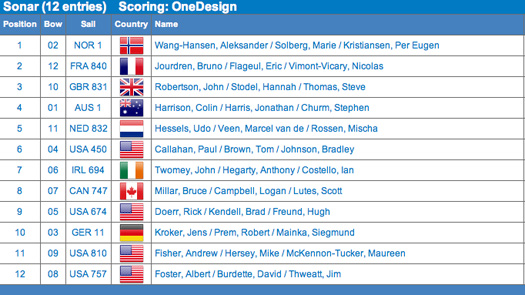
Set-back for Twomey in Weymouth
There have been set backs for the Irish Paralympic crew today in the Sonar Class at Weymouth in the IFDS Worlds writes Claire Bateman.
Crews braved winds of more than 20 knots in Portland Harbour today as Weymouth and Portland's finally lived up to its reputation as a breezy venue after three days of light and fluky airs.
Things are really starting to hot up with two days and three races to go.
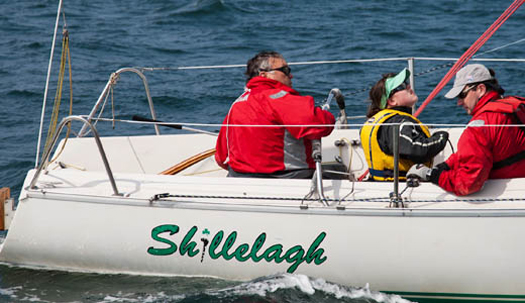
Gear failure has dropped Shillelagh to 12th. Photo: Bob Bateman
In spite of the fact that they suffered gear breakages in both races today that saw them slip to 12th place from 9th yesterday, when speaking with John Twomey after racing, he and his crew remained confident of qualifying the Irish spot for the 2012 Paralympics. Eight countries have qualified already and with six places remaining to be filled and, making the calculations, he said, except for disaster, they were very hopeful of making the qualification. He said that in to-day's racing they had to contend with winds of 25 knots making for extremely difficult conditions.
With the breezes well over 20 knots the 155 sailors competing at the RYA-run event at Weymouth and Portland National Sailing Academy this week were provided today with a completely different challenge to the first three days of racing and with the strong winds now forecast to remain for the rest of the week, the competitors are facing some close to the knuckle sailing. Competition in the Sonar Class is extremely keen and includes top world level sailors. Defending World champion Thierry Schmitter (NED) continued his march to his third consecutive crown with a first and second today, increasing his lead to 17 points over Britain's Helena Lucas. A good day for Schmitter's Dutch team mate Andre Rademaker saw him move into the medal places, as a race eight disqualification for Britain's Megan Pascoe saw her drop to fourth.
Racing continues tomorrow(Thurs) with Races 9 and 10 and will finish with Race 11 on Friday.


























